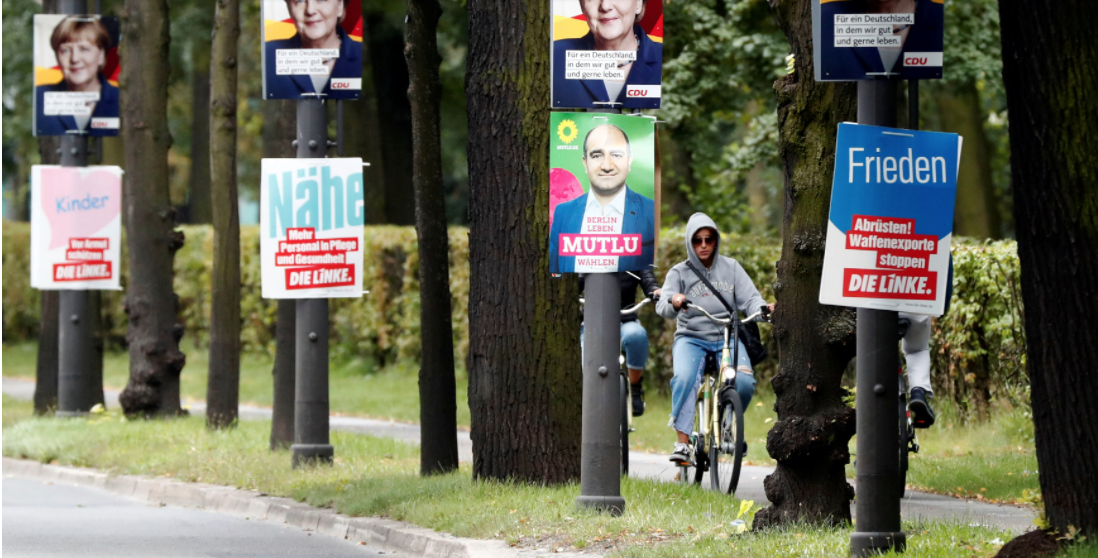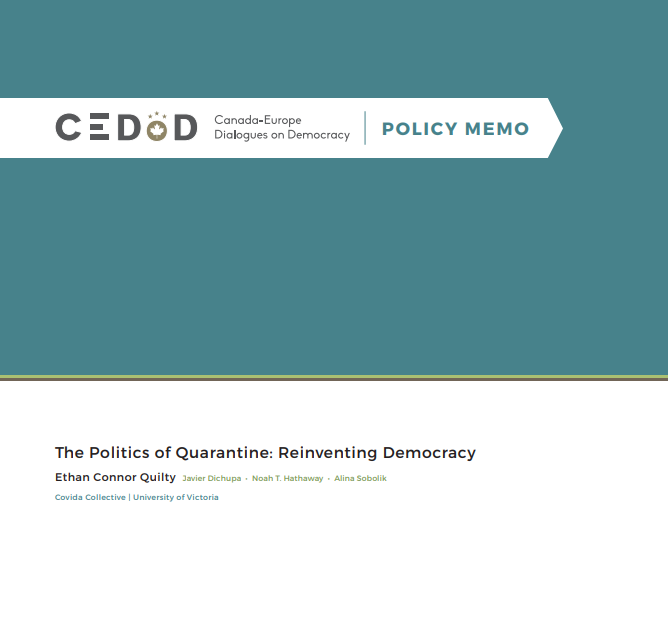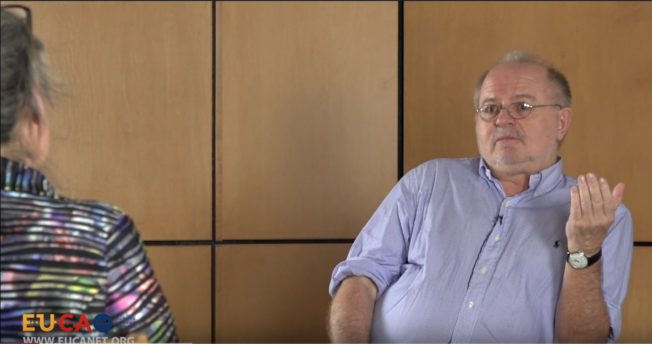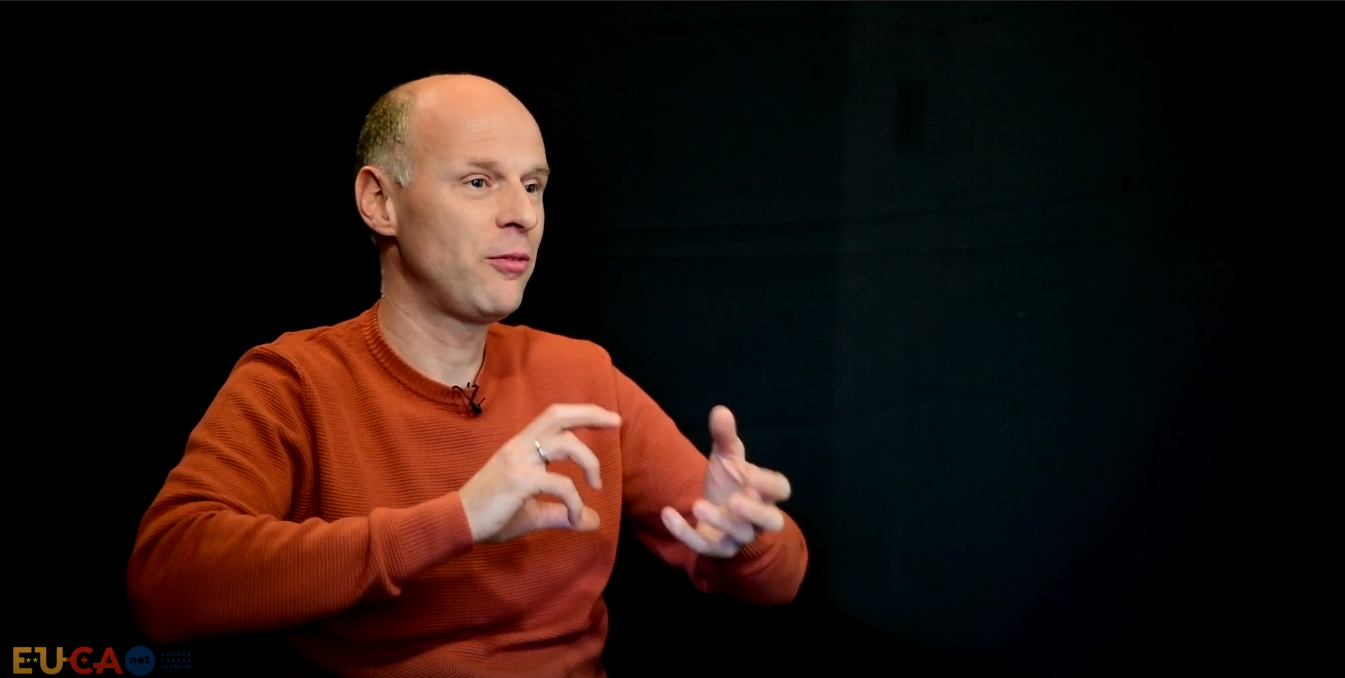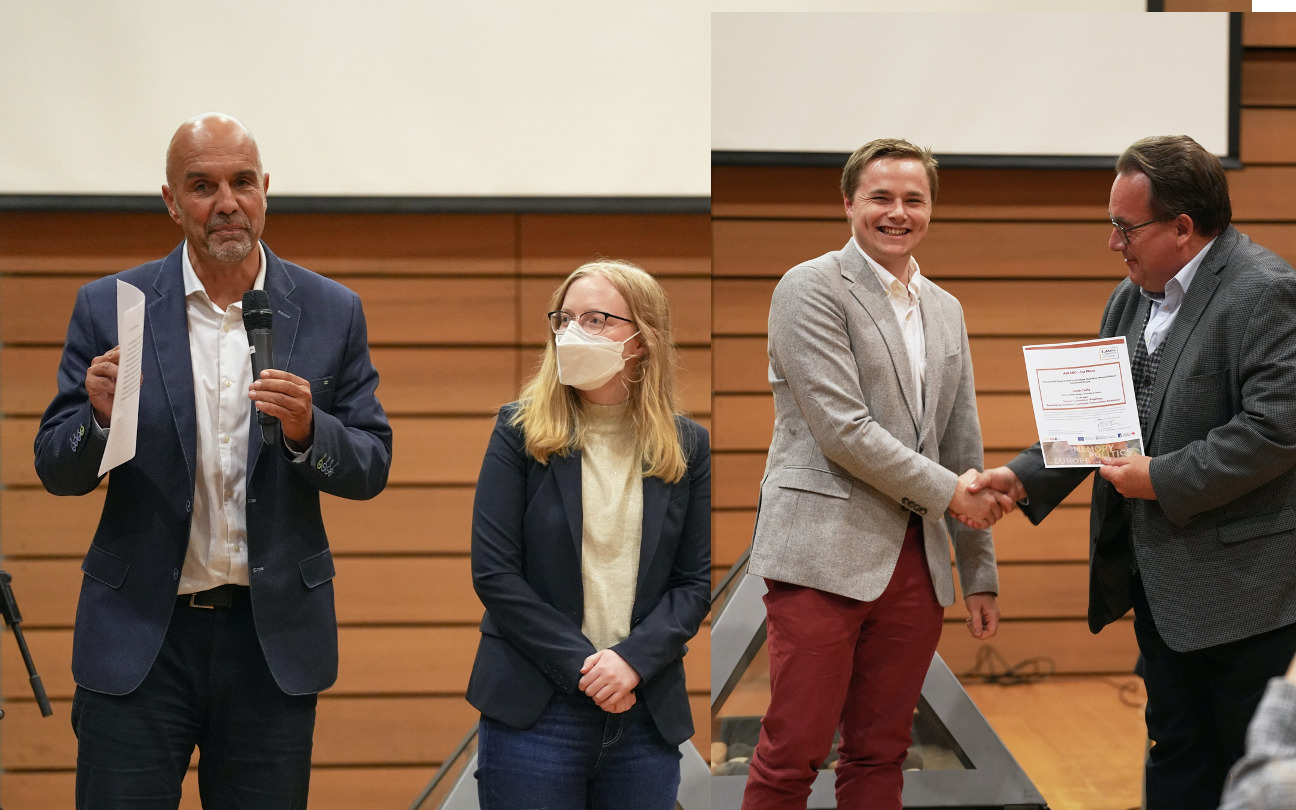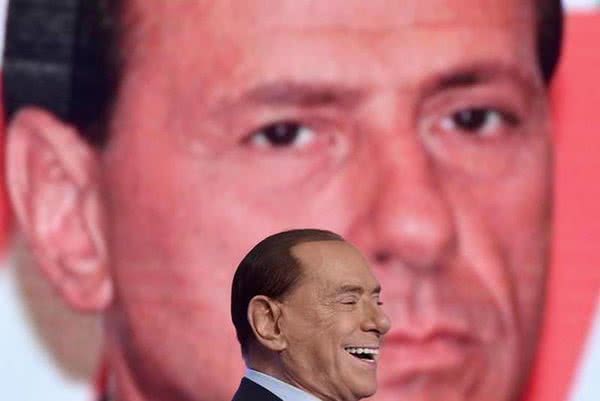Merkel’s Path to Victory and the Rise of the Extreme Right, by Oliver Schmidtke
By Oliver Schmidtke, Centre for Global Studies at the University of Victoria
On Sunday, Germans will head to the polls after an election campaign that has largely been void of excitement and perceived by many simply as uninspiring. There has not been a great desire for political change in a country that mastered the economic turmoil of the past years relatively well. Most observers agree that Angela Merkel will succeed in securing a fourth term as Germany’s chancellor. The most recent surveys put the governing Christian Democrats solidly in the lead even if their numbers have slipped slightly lately. The longing for stability and continuity is the dominant sentiment in the German public overshadowing any frustration with twelve years of rule under Chancellor Merkel’s leadership.
However, over the past year, Merkel’s had to face some challenges leading up to the showdown on Sunday. The most serious one was the political repercussions of Germany’s open-door policy towards the hundreds of thousands of refugees who came to Europe in 2015 and 2016 (in 2016 alone, over one million refugees arrived in the country). From an electoral perspective, this strategy proved highly risky for Chancellor Merkel who herself was one of the most outspoken advocates for a liberal refugee policy. In the end, this issue did not cost her as much public support as some might have feared or hoped. The second major challenge was the invigorated Social Democratic Party (SPD) who, at least at the beginning of the year, seemed to be in a position to put up a veritable fight. During these months, there was a real sense of excitement in the electoral race when the SPD candidate, former president of the European Parliament, Martin Schulz, gained political momentum with his social justice agenda. Yet, this excitement clearly dissipated very quickly. Pollsters put the centre-left party, which has kept a relatively low profile as the junior partner in the Grand Coalition, now at an embarrassing 20+ percent.
The open questions of Sunday’s elections relate to the smaller parties in the German Bundestag. Most importantly, how well will the anti-EU, anti-immigrant Alternative for Germany (AfP) do in the election? It is now almost certain that the AfP will be the first right-wing party to be voted into federal parliament since the end of WWII. They are predicted to score close to 12%, which would make the AfP the strongest opposition party, if the Grand Coalition between the two main parties were continued. Finally, the other striking reason why the votes for the smaller parties will be of decisive weight is that in order to form government for the next four years, Chancellor Merkel might have the choice between 1) continuing the coalition with the SPD or 2) to opt for the re-emerging liberals (FDP) who were not represented in the last Bundestag. This second option would push Christian-Democrats towards a more neo-liberal approach and it would provide the social democrats with the opportunity to regain strength in the opposition. In the end, while the election may not be a dramatic change for Germany now, Chancellor Merkel’s coalition choice and the rise of the extreme right may prove to shift Germany’s political path decisively for the next several years.
About the author: Oliver Schmidtke is Director of the Centre for Global Studies (CFGS) and Jean Monnet Chair in European Politics and History at the University of Victoria. Dr. Schmidtke, a former director of European Studies and president of the European Community Studies Association in Canada (ECSA-C), holds appointments in the departments of Political Science and History. Currently his research focuses on issues of democracy, populism, memory politics, the labour market inclusion of highly skilled immigrants as well as processes of political advocacy of migrant and minority groups.
See also:
Merkel seems poised for victory. Interview with Oliver Schmidtke on Sept 22, 2017.
German far-right makes gains. Interview with Oliver Schmidtke on Sept 25, 2017.
